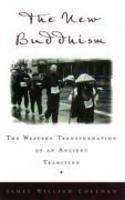
Book Summary
Today, many in western society find themselves seeking more satisfying spiritual lives. Faiths formerly seen as exotic have suddenly become attractive alternatives in our multicultural society. This is especially true of Buddhism, which is the focus of constant media attention, thanks in part to celebrity converts, major motion pictures, and the popularity of the Dalai Lama. Following this recent trend, James Coleman argues that a new and radically different form of this ancient faith is emerging. Investigating the contemporary scene, Coleman finds that Western teachers have borrowed liberally from different Buddhist traditions that have had little interaction with each other in Asia, that men and women practice together as equals, and that the path of meditation and spiritual practice is offered to everyone, not just an elite cadre of monks. Drawing on interviews with noted teachers and lay practitioners, as well as a survey completed by members of seven North American Buddhist centers, Coleman depicts the colorful variety of new Buddhists today, from dilettantes to devoted students and the dedicated teachers who guide their spiritual progress. He also details the problems that have arisen, especially with regard to gender roles, sex, and power. Exploring the appeal of this exotic faith in postmodern society and questioning its future in a global consumer culture, The New Buddhism provides a thorough and fascinating guide to Western Buddhism today.
Book Details
| Book Name | The New Buddhism |
| Author | James William Coleman |
| Publisher | Oxford University Press, Usa (May 2002) |
| ISBN | 9780195152418 |
| Pages | 272 |
| Language | English |
| Price | 1015 |








